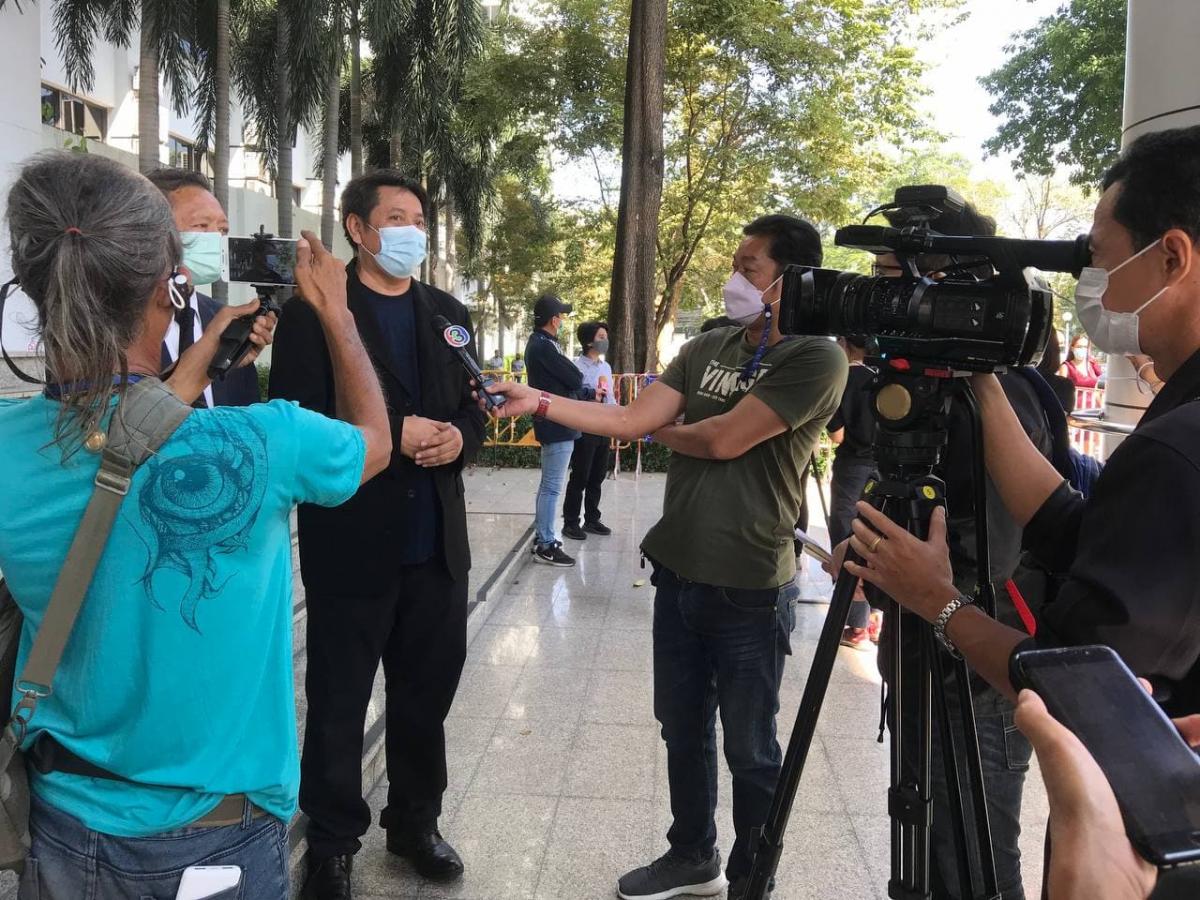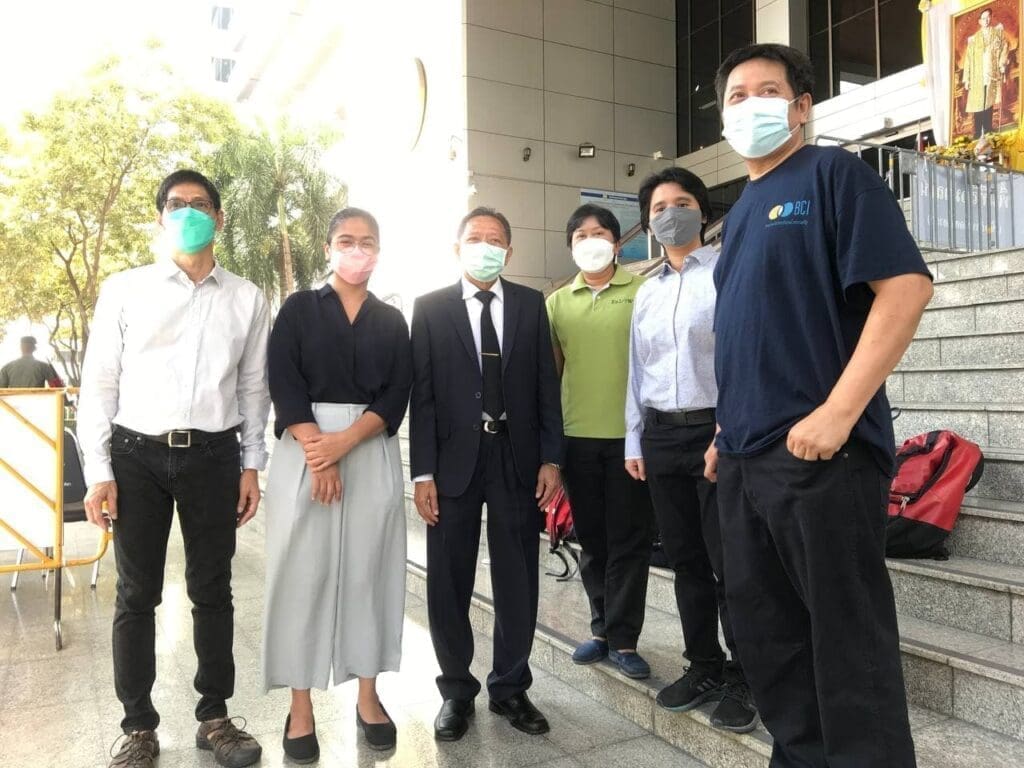On 15 December 2021, the Criminal Court of Thailand reviewed and dismissed charges against the case of Mr. Vitoon Lianjamroon who has been accused of defamation for the opinions he expressed during a TV interview and violating the Computer Crime Act for a post he made on social media. These accusations were brought forward by the Weed Science Society of Thailand and its president, Ms Chanya Maneechote, who disagreed with the contents of the posts and commentary since they had the potential to harm her business.
Mr Vitoon Lianjamroon is an environmental rights defender who has been advocating for a change in Thailand’s agricultural and food systems—including pushing for the ban on certain chemicals that are harmful to the public. Small-scale producers work at the base of the capitalistic pyramid, and they have very limited guarantees of economic or social security and insufficient healthcare. He also advocates for a sustainable and environmentally friendly agricultural system, as well as the right for people to speak the truth about these matters.
The case stems from a post that was published on BioThai’s Facebook page and statements made during a TV interview, in which Vitoon warned about the danger of using chemical products. The Weed Science Society of Thailand and its president, Ms. Chanya Maneechote dragged Vitoon to the Criminal Court of Thailand, claiming that his comments went against the Penal Code, Sections 326 and 328, and the Computer Crime Act, specifically Sections 14 and 16.
However, the judge dismissed the charges because the post shared by Vitoon was about the danger of chemicals and, as such, these statements are an academic opinion meant to promote public safety. As for Vitoon’s interview, it did not constitute an offence against the defamation law, since neither the Weed Science Society of Thailand nor her president were mentioned during the interview.
The dismissal of the case is good news for Mr. Vitoon Lianjamroon, but also for other academics and activists who are working to protect health and the environment. Many environmental activists, in Thailand and beyond, are threatened in an attempt to stifle the truth. In this case, however, the public was given a chance to know more in-depth information about the extreme danger of these chemical substances that are being used in food systems, and how various profit-oriented interest groups are actively working to prevent any kind of ban on these chemicals.
Bio Thai, Protection International and the ENLAWTHAI Foundation recommend that the government of Thailand fulfil its duties to protect human rights defenders (HRDs) and all those putting their lives at risk to stand up for our rights.
Thailand should also ensure that all people enjoy the rights and freedoms provided by the constitution to participate in the preservation of the environment, their health, their communities as well the general public interest. They should be regarded as HRDs as defined in the UN Declaration on Human Rights Defenders, which obliges Thailand to uphold the rights of HRDs to perform their activities safely without any fear of intimidation or threats.
Last but not least, Thailand’s government should make sure that state actors and all relevant business enterprises immediately end the judicial harassment of HRDs, especially environmental and women HRDs They must take concrete steps towards promoting good business with a genuine commitment to human rights according to business and human rights principles.
A summary of the court’s verdict
These findings are in reference to the claimed violation of Penal Code Sections 326 and 328 and the Computer Crime Act’s Sections 14 (1) and 16. The judges ruled that the Facebook post made by the defendant constitutes an academic opinion which contradicts the plaintiff’s opinion. Regarding the interview during a Khom Chud Luek TV program, no mention was made of plaintiff no. 1 and it did not constitute an offence against the defamation law since the audience would never be able to attribute it to the plaintiffs. As to the plaintiff no. 2, Ms. Chanya Maneechote, there was no mention of her. She, therefore, had no legal standing as an injured party according to the Criminal Procedure Code’s Section 2(4) and the Computer Crime Act’s Sections 14(1) and 16. No mention was made about the two plaintiffs and no doctoring of the images was made, and the act, therefore, did not constitute an offence of the Act’s Section 16. The defendant’s acts could not be held culpable as an insult by publication or input of false information according to the Computer Crime Act. And since defamation is a compoundable offence and although the case was reported to the police on 2 December 2020, it was filed with the Court over three months later. This has given rise to an expiry of the statute of limitations.



